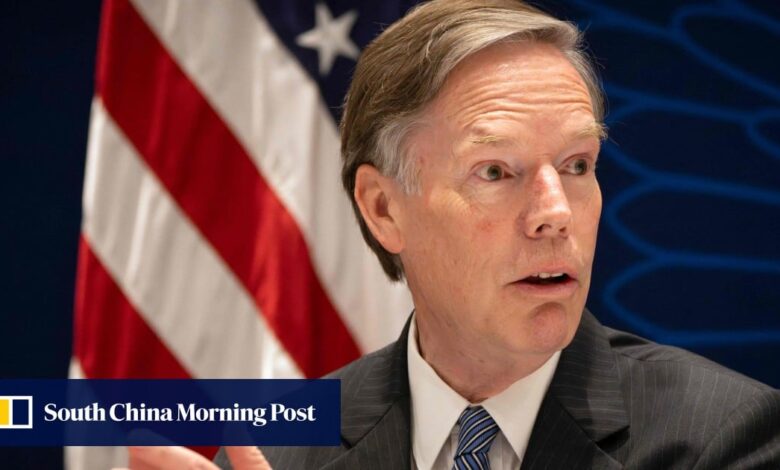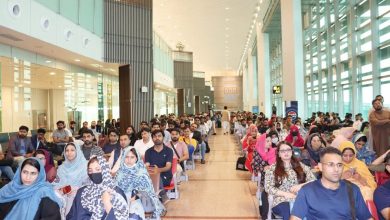Ambassador says US working to stabilise ties with China, questions Beijing’s peace efforts in conflict hotspots

“[US-China relations] is going to be the most important bilateral relations in the world … We’ve got to find a way to live together. It’s insanity to think we want this relationship to descend into conflict or a war.”
The delegation’s visit came after a flurry of trips by US officials in recent months, including Secretary of State Antony Blinken, treasury and commerce secretaries Janet Yellen and Gina Raimondo and climate envoy John Kerry.
Burns said the two countries had large differences on most of their tension points, especially those over Taiwan and technology. He said US officials had gained improved access when engaged with the Chinese but said “we will see” if recent rounds of talks would yield any “substantive outcomes”.
“We have to defend our interests, and we have to be tough minded,” he said, adding that technology was at the heart of competition between the two countries. “Because not only it will have a commercial impact – which economies will be dominant – but also a military impact.
“We have a sacred obligation to make sure the United States military remains the No.1 military in the Indo-Pacific. It is in no way possible for us to allow the Chinese to overtake us in military power.”
The US has ramped up tech restrictions against China in recent years, including banning semiconductor exports and tech investments in the country, aiming to limit Beijing’s access to sensitive technologies that would help advance its hi-tech and military development.
Burns said there would be more ministerial-level Chinese officials coming to the US but declined to say whether a meeting between Xi and US President Joe Biden would definitely go ahead at the Apec summit in San Francisco next month.
Spy games: why the US-China cold war is heating up in public
Spy games: why the US-China cold war is heating up in public
Burns said the US and China would also step up people-to-people communications, citing increased direct flights, planned tourism events in both countries and a high number of visas granted to Chinese students recently.
He said the US was disappointed by China’s response to the conflict in not directly condemning the Hamas group and calling for a “two-state” solution, a proposal that Hamas did not accept.
“China has taken on, by its own admission, a bigger role in the Middle East. They’ve tried to broker some kind of rapprochement between Saudi Arabia and Iran. They say they want a two-state solution. But you have to be effective, you have to stand for something,” he said.
He said it remained to be seen if China could be a “true mediator” as it often appeared “distanced” from these conflicts, compared to the US, which had been practising “practical diplomacy” in the region for decades.
“They don’t appear to be trying to actively mediating with Ukraine and Russia,” he said, adding that it was “a poor choice” for China to declare a “no-limits” relationship with Russia that had distanced Europe and pulled Indo-Pacific countries closer to the US.
He said countries were “flocking to the United States” because there was a fear of an axis “with Russia, China, and perhaps with Iran and North Korea”.
China will host its Belt and Road Forum for International Cooperation in Beijing next week to celebrate the 10th anniversary of the initiative, with Russian President Vladimir Putin and 130 other global leaders and representatives expected to attend.
Chinese envoy tells Palestinian official ceasefire is ‘top priority’
Chinese envoy tells Palestinian official ceasefire is ‘top priority’
Burns said countries working with China on the Belt and Road Initiative had to be aware of the potential to become dependent on Chinese aid. The West has accused the plan of being a “debt trap” for developing nations, a claim Beijing has repeatedly denied.
“It is an area of healthy competition … It’s part of a competition on the global side, a stage between China and many of the democratic countries in the world.”






